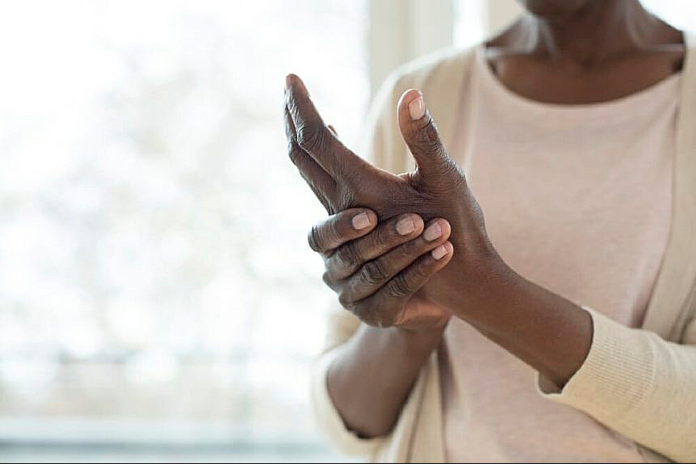Hand tremors are pretty common. In some cases, the issue is entirely normal; in others, further medical evaluation is needed. Mostly all folks with the condition agree that using their hands for daily tasks can be challenging at times.
What are tremors?
Tremors are involuntary muscle contractions that can cause body parts to shake. Everyone has a slight tremor when moving or maintaining a particular posture. This is called a physiologic tremor.
Physiologic tremors are often so small that a person does not see or notice them. Hand tremors may be more noticeable when someone holds their hands out straight in front of the body or when they are stressed or anxious.
Tremors can range in intensity and primarily affect hands but can occur elsewhere on the body:
Head
Arms
Legs
Torso
Voice box (larynx, shaky voice)
What brings on tremors?
It is normal to have slight tremors, but they can become more noticeable with…
Age
Stress
Low blood sugar
Anxiety
Lethargy
Excessive caffeine intake
Heat or cold temps
Overactive thyroid
Liver or kidney failure
Mercury poisoning
Inherited degenerative disorders
Neurological conditions that can cause tremors:
Multiple sclerosis (MS)—A degenerative disease that attacks the brain and spinal cord, making it difficult for the nerves to relay messages. MS can cause several tremors.
Parkinson’s disease—A disease that involves a loss of nerve cells in a part of the brain that plays a critical role in the motor movement. About 75 percent of people with the disease have tremors, whether resting, action, or mixed.
Stroke—Someone who has had a stroke can show many tremors depending on which area of the brain was affected.
Traumatic brain injury (TBI)—Tremors after brain injury, also known as post-traumatic tremors, are a rare side effect of TBI. They mainly occur after damage to the cerebellum.
Dystonia—The condition is caused by damage or degeneration of the brain (e.g., after a brain injury or stroke) or exposure to particular drugs. Patients usually have a shake in their hands when they are performing a task rather than at rest.
Medications
Certain drugs within the following categories can bring on hand tremors:
Asthma drugs
Antidepressants
Seizure meds
Cancer meds
Antibiotics
Amphetamine
Corticosteroids
Meds that suppress the immune system
Heart meds
Antiviral meds
Essential tremors
The most common cause of shaking hands for adults is essential tremors. Essential tremors are not well understood. They are thought to be caused by a disruption in the normal functioning of parts of your central nervous system, such as your cerebellum. These types of tremors run in families sometimes. In fact, about 50 percent of cases of essential tremors are thought to be genetic, according to the National Institute of Neurological Disorders and Stroke.
If your shaky hands are caused by essential tremors, there’s no cure, but there are ways to manage. The condition, which often begins in adolescence or your 40s, may worsen as you age.
Researchers aren’t entirely sure what causes the neurological interruption or how to stop it. They’re also unclear as to whether it’s a degenerative process.
Can you stop your hands from shaking?
Many people have resorted to trying a few of the suggestions below to help control their shaky hands:
Lifestyle changes: The following lifestyle changes may help to reduce hand tremors in people with enhanced physiologic tremors (more noticeable form affecting hands and fingers on both sides):
- avoiding vigorous exercise
- avoiding excess alcohol consumption
- avoiding stimulants like caffeine and amphetamines
Treating underlying conditions: Hand tremors that occur due to an underlying condition, such as hyperthyroidism or alcohol withdrawal, typically improve following treatment for the underlying condition.
Psychological techniques: People who experience tremors due to anxiety or panic attacks may benefit from practicing relaxation techniques, such as mindfulness and breathing exercises.
Switching medications: Tremors can be a side effect of taking certain drugs. A person who experiences tremors while taking medication should report the side effect to their doctor. The doctor may be able to adjust the medication dosage or switch the person to a different drug.
Physical therapy: A physical therapist can teach people exercises to improve the following:
- muscle control, functioning, and strength
- coordination
- balance
Occupational therapy: An occupational therapist can help people living with tremors to continue engaging in their usual daily activities.
What therapies treat shaky hands?
A therapist may recommend one or more strategies to help ease the symptoms of essential tremors. Suggestions may include:
- Using heavier objects: You may need to replace lightweight or delicate objects, such as glasses, silverware, or plates, with heavier versions. The extra weight may make the items easier to handle.
- Using specially designed utensils and tools with special grips: Gripping and controlling items like pens, pencils, garden tools, and kitchen utensils may be difficult if you have shaky hands.
- Wearing wrist weights: The extra weight on your arm may make control easier.
What about surgery?
A doctor is unlikely to recommend surgery as your first treatment option for tremors. Surgical treatments are typically reserved for people who have severely disabling tremors. Surgery may become an option as you age or if therapies do not help the tremors.
When to see a doctor
Anyone who suddenly develops tremors in their hands or other body parts should see their doctor for a diagnosis. A medical provider must rule out more severe causes, some of which may require prompt medical treatment. While there’s no cure for most hand tremors, therapies and lifestyle changes may provide relief, depending on the cause.











